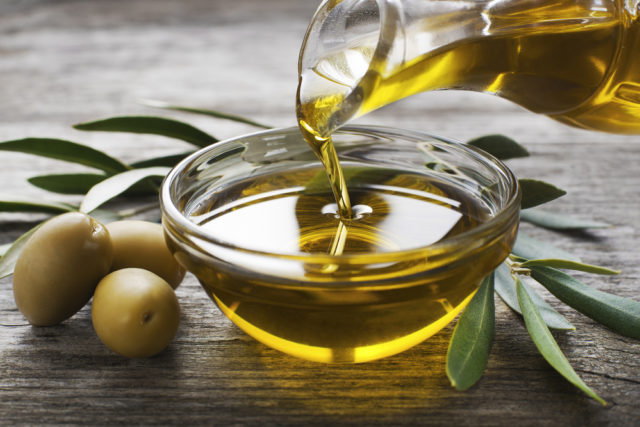
What is the Mediterranean Diet?
Ok, so it’s got the word “diet” after it, so you are probably thinking with the Mediterranean diet you have to cut out carbs, fat or a certain food is the enemy. Perhaps you’re thinking you are going to have to spend your time focusing on what foods to avoid instead of what to eat.
Well, I’m here to tell you that the Mediterranean diet is not some fad diet that’s restrictive and not sustainable. It’s about focusing on what should be on your plate regularly.
It’s about enjoying food!
Research has shown the Mediterranean diet is one of the best ways of eating out there, it helps with weight control and reducing the likelihood of certain lifestyle diseases such as heart disease, diabetes, and depression.
Great news!
So let’s dive deeper into the Mediterranean diet – what it is and what the science says about it.
What is the history of the Mediterranean diet?
What comes to mind when you think of “Mediterranean”?
Long sunny days?
Olive trees?
Warm turquoise water?
Fishing boats bobbing up and down in the sea?
Sitting around a large table spread with family and friends?
Well, you’re not wrong if that’s what you can envision and that pretty much sums up my visits to Cyprus. All of that plays a part of the Mediterranean diet, it takes into account the traditional food choices, lifestyle and eating patterns of countries surrounding the Mediterranean Sea.
So let’s get into the science…
Dr Ancel Keys, an American scientist was the first to champion the health benefits of the Mediterranean diet. He performed his legendry Seven Countries Study in the 1950s. It looked into the health outcomes of nearly 13,000 middle-aged men in the United States, Japan, Italy, Greece, Netherlands, Finland and Yugoslavia. Dr. Keys and his team found that there was lower cholesterol and lower rates of heart disease in people living in the Mediterranean region.
Since then, hundreds of studies have not only confirmed Dr. Key’s findings but documented even more health benefits linked with the Mediterranean diet.
The Lyon Diet Heart Trial in 1998 showed that those who ate a Mediterranean style diet were 72% less likely than those eating a Western-American diet to have a second heart attack or to die from heart disease. The landmark PREDIMED trial from Spain found that a Mediterranean diet that included nuts or extra-virgin olive oil reduced the risk of heart disease compared to a reduced-fat diet.
What scientists discovered was that Mediterranean countries shared a similar lifestyle of exercise, in the form of walking and food consumption – fresh and healthy.
Looks like the Mediterranean diet seems to kick butt compared to the Western style diet.
In 1993, the MedDiet pyramid was developed thanks to Oldways which was designed in partnership with the World Health Organisation and Harvard School of Public Health.
What is the Mediterranean diet food pyramid?
Here’s what it looks like:

As you can see, the above pyramid is not limited to the number of days or any other typical diet schedule – it’s something that you incorporate as a ‘lifestyle’.
Let’s break down this pyramid into more bite-size sections.
Starting with the base – firstly, the Mediterranean food pyramid recommends exercise and suggests to be active for 30mins a day. These activities can range from strenuous exercise such as aerobics and weight training to taking a leisurely walk. Taking the stairs instead of the elevator also counts!
Secondly, it says “enjoy meals with others”. Why is this?
Is it an “eat less” secret weapon?
Have you ever noticed that while visiting a Mediterranean country, they usually eat at a leisurely pace? Typically a lunch can last a couple of hours.
Eating a meal is an event, shared with family and friends spent talking (in my household it’s talking about what we should cook for our next meal!) By talking with people and enjoying the moment, you slow down your eating and eat just the right amount.
This is the secret weapon. Eating slow and stopping as soon as you’re full.
Do you ever find yourself staring at your computer screen while you eat your lunch?
Here’s the truth…your emails can wait.
Take half an hour out of the day and eat with co-workers/friends, even go for a stroll. Pretty soon you will notice the difference.
What to eat on the Mediterranean diet?
As you move up the pyramid, you’ll find the basic food groups you should focus on getting the most of every day. These are wholegrains, fruits, vegetables, legumes, nuts, herbs, spices and healthy fats with an emphasis on olive oil. (Download my free Mediterranean Diet Shopping List to start stocking up your cupboards with foods from the pyramid.)
Where should the majority of fat in the Mediterranean diet come from?

You’ll also notice in this section of the pyramid there’s a big jug of olive oil behind the carrots. This is where people following the Mediterranean way of eating get most of their fats – from a healthy source.
So, feel free to put olive oil on your food, it’s a good alternative to salad dressings.
A healthy diet can certainly include fats!
Next step up the pyramid, you have fish and seafood. I can say when I’m in Cyprus I easily eat fish at least 2-3 times per week like suggested. Fish is such an important factor in the Mediterranean lifestyle. It’s an essential source of protein and heart-healthy omega 3 fatty acids.
So try and start incorporating fish into your eating pattern and find what you like and start there. It may be fish such as salmon or sardines. Also, try and find out what fish is in season.
And then there’s dairy and poultry- these are the ones that you should aim to eat frequently in small portions. Eggs are great to have at breakfast, boiled, fried or scrambled however you like to eat them.
How often should you eat red meat?

You’ll see at the top of the pyramid is red meat and sweets. You may be thinking it’s interesting to see them mixed together, but this is because they should be rarely eaten.
In my household, we don’t eat a lot of red meat, as recommended (once a week or less), but it’s no secret that I’m a big fan of lamb, or as my husband says, it’s in our Mediterranean blood for sure!
When it comes to sweets, think of them as a treat rather than a regular part of your daily meal.
Can you drink wine on the Mediterranean diet?
Finally, as you probably have already spotted you can have wine as part of the Mediterranean diet.
Can you have it every day? Absolutely!
But in moderate consumption of course…and could certainly be left out for various health reasons. The recommendation is women can have up to one glass per day while men can have up to two.
Since we’re on the topic of liquids: don’t forget to keep well hydrated – you can have as much water as you can per day.
How do I get started on the Mediterranean Diet?
You can leave the lengthy scientific research papers to me, but here are the main takeaways…There are three elements to the Mediterranean diet: follow the food pyramid, physical activity and socializing.
It’s not about restrictive eating, complicated measuring and tasteless food. It’s all about eating real food and moving every day to help decrease your risk of bad things happening to your body and increase your risk of good things. It’s a win-win!
I recommend that you start slow and make gradual changes from your current diet to the Mediterranean diet.
If you want to know how to get started on the Mediterranean Diet than check out my Mediterranean Diet Shopping List that you can download for free and print off and take with you to the supermarket.
-Elif



